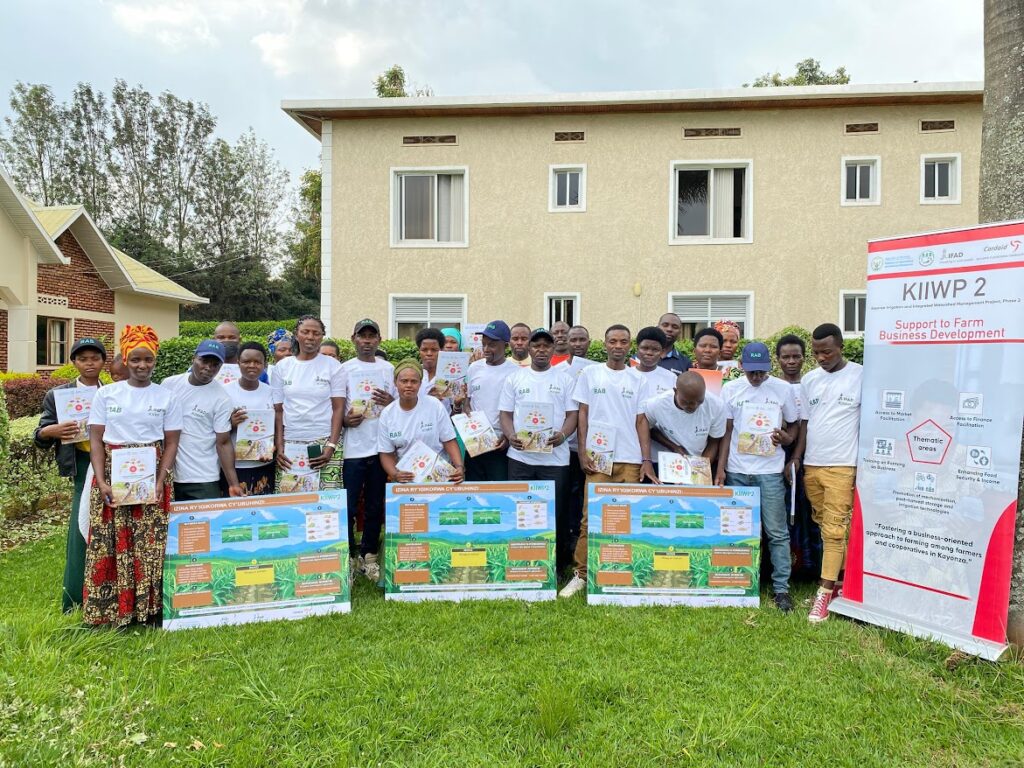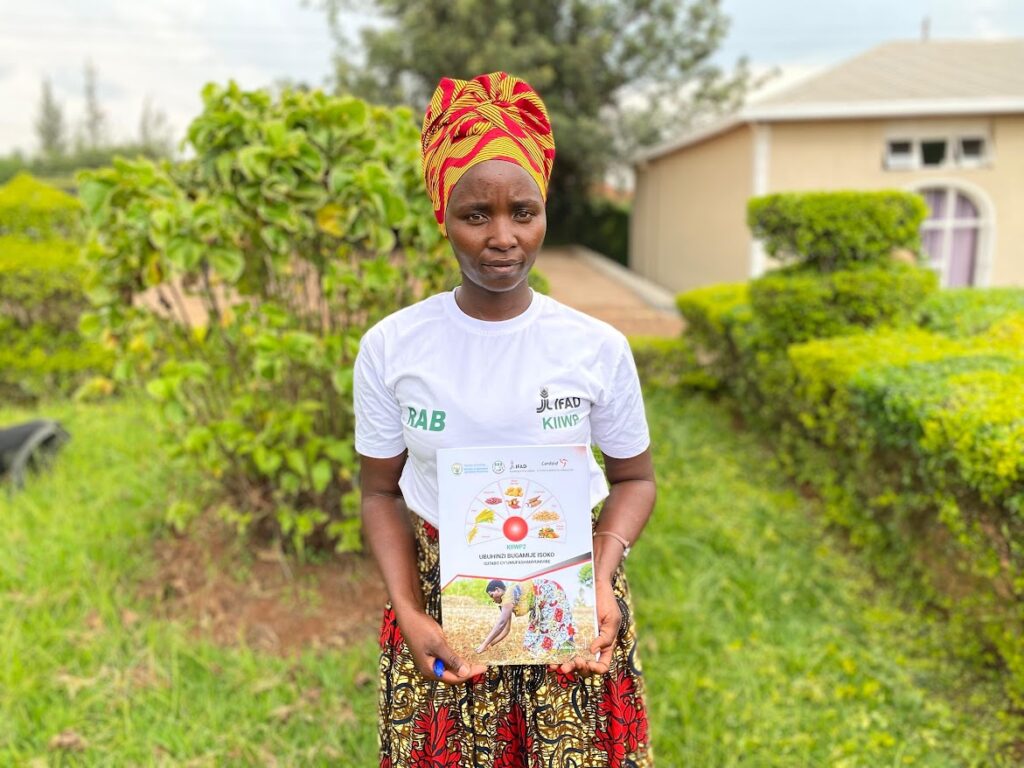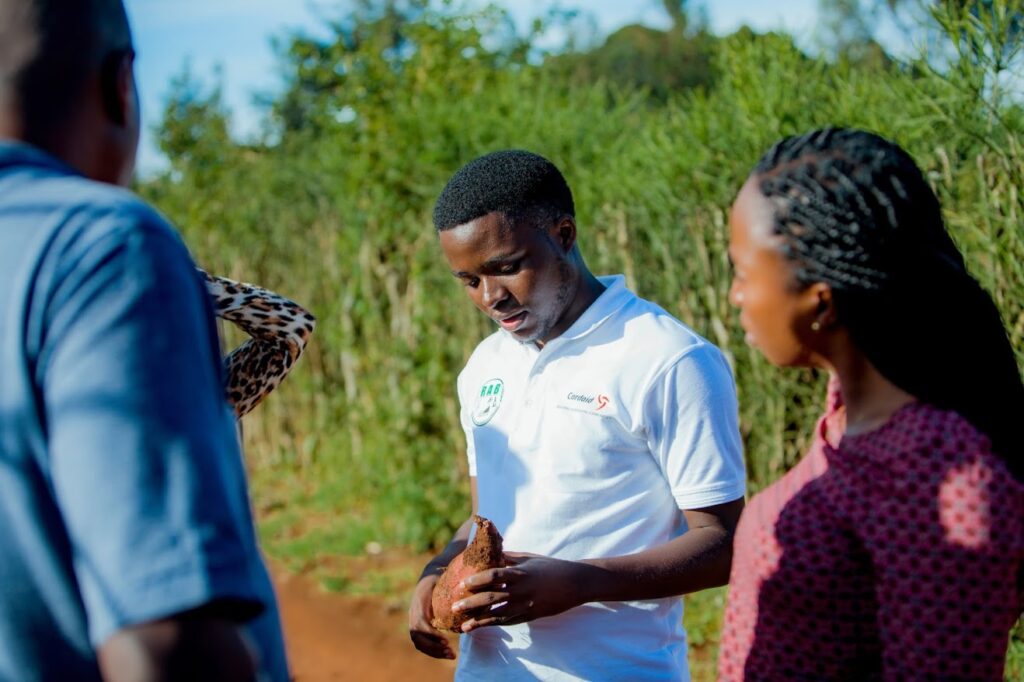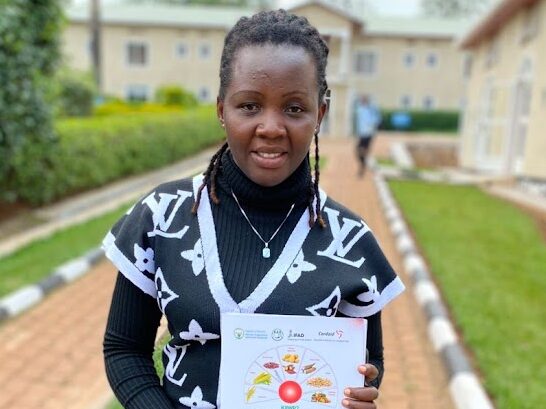When farmers think like entrepreneurs, communities thrive. Discover how Rwanda’s smallholder farmers are turning fields into thriving businesses through Cordaid’s Farming as a Business approach.

In the heart of Kabeza Village in Kayonza district, the morning sun spills over a landscape once marked by uncertainty. Claver Bucyempore, a smallholder farmer and member of the Farmer Field School group, stands proudly beside his cabbage plot, a notebook in his hand. The rows are perfectly aligned. ‘Before, I just planted without thinking,’ he says, smiling. ‘Now I plan, track my costs, and make profits.’
For years, farming for Claver and his neighbours followed an unspoken rhythm: plant, hope for rain, harvest what comes, sell if possible, and repeat. Farming was a routine. A way to survive, not a strategy.
When Agriculture Meets Entrepreneurship
Across Africa, agriculture remains the backbone of more than half of national economies. In Rwanda, over 70% of the agricultural workforce consists of smallholder farmers. Yet, for many farming families, their tireless efforts have not always translated into the prosperity they deserve.
Policies have been written, visions and strategies drafted, and budgets debated, but on the ground, the smallholder farmer’s reality often lags behind the promises on paper.
The truth is simple but powerful: a non-functioning backbone leads to a paralysed body. When agriculture underperforms, economies limp.

Cordaid, working with the Government of Rwanda and partners such as the International Fund for Agricultural Development (IFAD), has chosen to address this gap not through lofty theories, but through mindset shifts. The Farming as a Business approach is proving to be a game-changer.
A Model That Clicks
Farming as a Business is a structured yet digestible model designed to cultivate business minds before cultivating soils. Through training and coaching, farmers learn to plan, compute, and strategise: from cost-benefit analysis to seasonal calendars, from market research to savings plans.
Under the Kayonza Irrigation and Integrated Watershed Management Project Phase II (KIIWP2), Cordaid integrated this model into existing Farmer Field Schools. Over 200 facilitators were trained, and this knowledge was cascaded to more than 6,000 farmers across the district.
Kayonza, a drought-prone district in Eastern Province, has long struggled with dry spells that reduced farming to a gamble. But through Farming as a Business, farmers are learning to turn unpredictability into calculated moves.
‘The road to prosperity isn’t about who starts first, but who moves smartly and efficiently,’ says Cordaid’s KIIWP2 coordinator, Private Dukundimana. ‘When farmers understand the business journey, they navigate every turn with purpose.’

A Ripple Effect Beyond the Fields
The transformation of the group is not an isolated story. Across Kayonza, farmers are rethinking their approaches. Some are experimenting with high-value crops, such as onions and cabbage, during off-seasons to tap into premium markets. Others are keeping meticulous records for the first time, separating household spending from farming investments.
Village gatherings once focused on discussions of social and local government agendas; now, facilitators are being invited to delve into conversations on farm recording, savings plans, and agricultural insurance. They have become local agribusiness ambassadors, guiding their peers through the new mindset.
And the ripple is spreading. What started in Kayonza is being extended through other projects across 15 districts. Donor support, especially from IFAD and the Government of Rwanda, is propelling this expansion.

Agriculture has been part of Rwandan life for generations. But the future belongs to those who look at their land not only as soil to till, but as an enterprise to grow. Farmers like Claver and Marie Claire are no longer passive producers at the mercy of the elements; they are planners, strategists, and entrepreneurs.
About the Project
KIIWP2, funded by IFAD and implemented in partnership with the Government of Rwanda, aims to improve food security and incomes for 40,000 rural households in drought-prone Eastern Province. Cordaid leads the component on Farm Business Development, focusing on scaling the Farming as a Business model to transform subsistence farming into sustainable agribusiness.